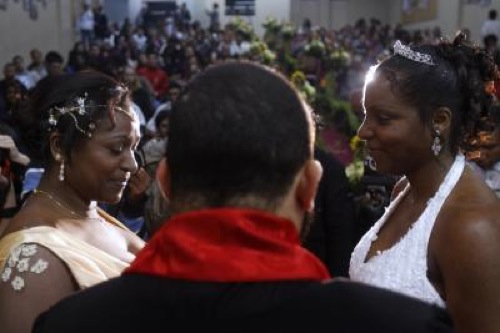The Black Vote for Gay Marriage
On election night in 2008 in California, where marriage equality was on the ballot in the form of Proposition 8. As the night progressed, it became clear that same-sex couples in California would lose their recently won right to marry. The elation that many felt about President Obama’s election was countered by spontaneous protests and visible outrage at this inequity. Almost immediately, it was wrongly reported that the African-American community had voted for Proposition 8 by 70 percent. Many of us watched in horror as latent resentments, outright racism and homophobia bubbled to the top of the national political scene. In comes film maker Yoruba Richen who has been shooting “The New Black,” the film from which this Op-Doc video is adapted, for the past three years. In the course of production, Yourba realized that the issue of gay rights in the black community is in many ways a fight over the African-American family, which has been a contested space since the time of slavery. So marriage is not just about marriage for black people — it’s also about how blacks have become accepted as legitimate participants in American society.
Now this issue is playing out in Maryland. In February, the State Legislature passed a bill legalizing same-sex marriage. And just as with Proposition 8 in California, opponents to this bill collected enough signatures to put it on the ballot next week.
But there are some key differences from California’s experience: this will be the first time a gay-marriage referendum is on the ballot in a state with such a high percentage of African-Americans. This will also be the first vote on gay marriage since President Obama and the nation’s pre-eminent civil rights organization, the N.A.A.C.P., came out last spring in support of marriage equality. Both faced a backlash from some African-Americans, especially those in the religious community. But no matter which side you are on, the gay marriage question in the black community has forced a conversation, which is taking place in the pulpits and the pews, the hair salons and barbershops — and ultimately at the ballot box.
Take a look at a piece from Yoruba Richen’s documentary
WATCH:
Yoruba Richen is a documentary filmmaker who has directed and produced films in the United States and abroad in Africa, South America and Southeast Asia. Her previous film, “Promised Land,” showed on “POV” in 2010. She is a 2012 Guggenheim fellow.

Tidak ada komentar:
Posting Komentar